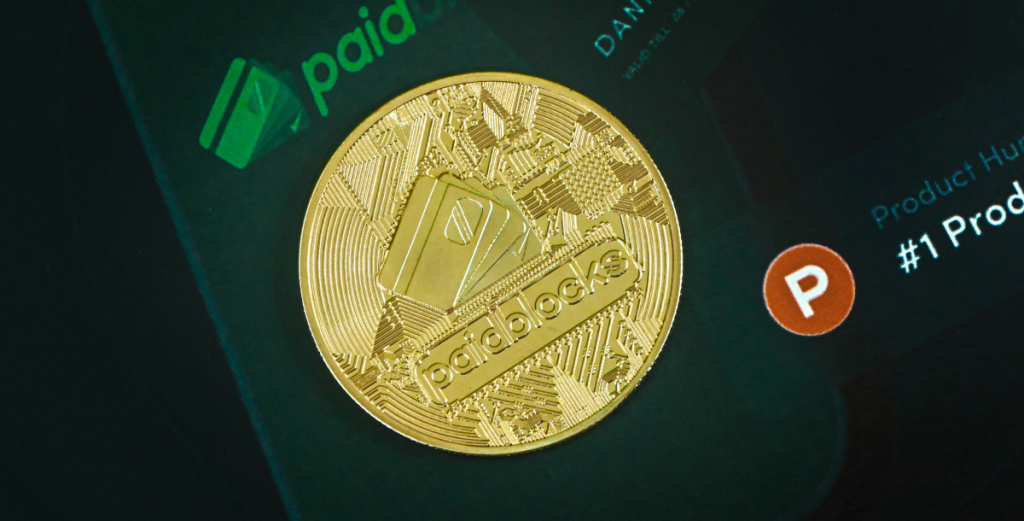Artificial intelligence is evolving and the cutting edge is shifting from passive models to proactive, independent systems: AI agents. These aren’t your average chatbots. They’re autonomous software entities that think, act, and optimize across environments without constant human oversight. The market for AI agents is on the verge of explosive growth, with some forecasts projecting a climb from $5.4 billion in 2024 to over $50 billion by 2030—a tenfold increase in under a decade. Some forecasts even see the agentic AI market reaching $200 billion by 2034.
For businesses, the appeal is obvious. Imagine a virtual assistant that doesn’t just wait for instructions but books your preferred flights, checks for scheduling conflicts, updates calendars, and alerts you if prices drop. Or a financial agent that monitors your portfolio around the clock, rebalances when needed, generates reports, and even initiates trades. These agents act like tireless team members—autonomous, efficient, and ready 24/7. French startup H Company develops “action-oriented” agents that execute complex web tasks without human intervention. And developer-driven frameworks like LangChain, AutoGPT, and CrewAI are empowering builders to deploy customized agents across industries.
How AI Agents Think, Act, and Transform Business Operations
Adoption is accelerating. As of 2024, 51% of companies reported having AI agents in production, with 63% of mid-sized firms leading the charge and 78% planning deployments soon. Deloitte predicts that a quarter of enterprise AI users will pilot agentic AI by 2025, with adoption hitting half of enterprises by 2027. Yet only 2% of companies have fully scaled their use—those that do are reaping significantly more value, averaging $382 million in returns versus $76 million for early-stage adopters.
AI agents are no longer science fiction—they’re goal-driven business allies transforming operations in finance, HR, IT, and customer service. For companies willing to invest in the right infrastructure, governance, and use-case strategy, these autonomous entities offer a massive competitive edge. The question is no longer if they will reshape your industry, but how quickly you’ll adapt to stay ahead.
What Is an AI Agent?
An AI agent is a goal-driven software program that uses artificial intelligence to sense its environment, reason through available choices, and autonomously perform tasks to achieve an objective. Unlike traditional automation that follows rigid scripts, AI agents are adaptive, able to handle ambiguous inputs and change strategies based on new data.
At their core, AI agents exhibit three foundational abilities:
- Perception: They gather information from digital sources—reading data from APIs, scanning documents, scraping websites, analyzing emails, or querying databases. For example, a finance agent might pull real-time stock prices or historical performance from multiple APIs before rebalancing a portfolio.
- Reasoning and Planning: Instead of executing fixed steps, AI agents break down broad objectives into smaller, logical tasks. They use AI planning frameworks like ReAct, Tree-of-Thought, or even ReWOO to simulate different action paths, prioritize, and decide what to do next. This is especially useful in dynamic environments like market trading or customer support.
- Action: Once a plan is formed, the agent takes action—interacting with software interfaces, sending emails, updating spreadsheets, executing trades, or even signing smart contracts. This can be done through UI automation (RPA), backend API calls, or blockchain transactions.
In the crypto space, AI agents can become powerful operational partners. They can monitor blockchain networks for specific on-chain events, trigger automated trades based on predefined strategies, or even coordinate cross-chain asset transfers. Compliance-focused agents can verify counterparties against sanctions lists, initiate Travel Rule data exchanges, and generate audit-ready transaction records. On the institutional side, they can manage multi-sig wallet operations, schedule rebalancing between cold and hot storage, and adjust liquidity positions across DeFi protocols—all with minimal human intervention.
How Do They Work?
AI agents operate through a continuous “Observe → Think → Act → Learn” loop—mimicking human problem-solving but within digital environments. Unlike traditional programs that follow static commands, AI agents dynamically adapt their behavior based on input, feedback, and evolving contexts.
Here’s how that process unfolds:
-
Goal Assignment
Every agent starts with a high-level directive—like “Book the cheapest business-class flight to Singapore next week” or “Monitor ETH prices and alert if it drops below $2,800.” This goal could be set manually by a user or triggered programmatically.
-
Planning
The agent breaks the task into subtasks (e.g., compare flights, check availability, verify calendar conflicts), evaluates which tools or data sources it can access (e.g., Skyscanner API, Google Calendar), and generates a strategy to reach the goal. This step often uses reasoning frameworks like ReAct or Tree-of-Thought to simulate possible paths before acting.
-
Tool Use
Agents don’t do everything from scratch—they integrate external tools. This can include:
- Web browsers for scraping sites
- APIs for data fetching or booking
- Spreadsheets, databases, or CRMs for storage
- Blockchain interfaces for on-chain execution
Think of agents as “smart conductors” that orchestrate tools to achieve results, not as monolithic programs.
-
Action
Once a plan is formed, the agent takes concrete steps: executing API calls, updating entries in a CMS, placing trades, sending follow-up emails, or even signing smart contracts. These are not pre-coded actions—they’re decisions made in real time.
-
Memory
Agents learn from outcomes. They store short-term data (like search results) and long-term insights (like which vendors gave better deals) in memory systems such as vector databases. This enables them to refine their behavior in future tasks or across sessions.
AI Agents vs. Traditional Automation: What’s the Real Difference?
AI agents mark a fundamental shift from rigid automation to flexible intelligence. While traditional bots are programmed to follow a fixed sequence of instructions, AI agents operate more like autonomous co-workers—capable of interpreting goals, adapting to new inputs, and choosing the best course of action across tools and platforms.
| Feature | Traditional Bots | AI Agents |
| Task Type | Fixed, repetitive tasks (e.g., input copying) | Open-ended, dynamic tasks (e.g., cross-platform research) |
| Learning | Rule-based, no self-improvement | Adaptive, capable of learning from feedback or results |
| Environment | Closed and pre-scripted | Open-ended, using APIs, websites, GUIs, smart contracts |
| Goal-Setting | Defined as a strict sequence of steps | Defined as a high-level outcome (the agent decides the path) |
| Intelligence Layer | None | Uses LLMs, memory, planning frameworks, and reasoning |
The key advantage: AI agents are general-purpose. You don’t need to anticipate every scenario or define every action. You just set the objective—like “find the best supplier with a 2-week delivery time”—and the agent figures out how to get it done using available tools.
Real-World Crypto Use Cases of AI Agents
AI agents are also transforming crypto functions and trading by automating complex and high-frequency tasks, from executing advanced arbitrage strategies and optimizing liquidity to autonomously managing portfolios and detecting fraud in real time.
1. Arbitrage & Market Stabilization
AI agents monitor fragmented exchanges and execute cross-platform arbitrage trades—buying low on one exchange and selling high on another. This not only generates profit but stabilizes prices and maintains liquidity across markets.
2. Automated Liquidity Rebalancing in DeFi
Agents dynamically adjust liquidity pools on DEXes like Uniswap or Curve, optimizing for slippage and impermanent loss. Some systems withdraw liquidity from one pool and redeploy to another, maximizing yield based on real-time demand.
3. Crypto Trading & Portfolio Management
Autonomous agents are actively managing positions: spotting whale trades, rebalancing funds, and executing limit orders with high accuracy—often outperforming rule-based bots. Platforms like Shinkai, Flower, and Blob are making these capabilities accessible without writing full-stack code.
4. Fraud Detection & Risk Management
AI agents now contribute to security infrastructure—flagging suspicious transactions, detecting smart contract anomalies, and alerting fraud in real-time. These systems act faster than traditional AML systems and centralise risk scoring across DeFi protocol.
5. Decentralized AI Marketplaces & Agent Services
Platforms such as SingularityNET and Fetch.ai host marketplaces where agents are registered, tokenized (e.g., with FET or AGIX), and monetized. Users discover agents from arbitrage bots to supply chain coordinators, each operating autonomously and economically incentivized.
6. Multi-Agent Collaboration & Infrastructure
Networks like Autonolas and Bittensor enable agents to collaborate, coordinate tasks, and share intelligence on-chain. Agents may negotiate, delegate or validate tasks—forming a decentralized multi-agent system with economic alignment
Why AI Agents are a Game-Changer for Crypto
AI agents are a fundamental shift, moving beyond a tech fad to redefine how crypto businesses operate, engage users, and manage compliance. Their impact on revenue, efficiency, and market positioning is immediate and significant.
Smarter Automation
Unlike static bots, AI agents understand context and adapt in real-time. They can execute complex, multi-step tasks—from rebalancing a portfolio based on real-time market data to handling post-transaction Travel Rule compliance—all without human intervention. This frees up your team from manual, repetitive work to focus on strategic growth.
Virtual Team Members
Consider AI agents as tireless, 24/7 digital colleagues. They can autonomously manage critical, recurring tasks like monitoring KYC funnels, generating treasury analytics, or flagging suspicious activity to your compliance team. This provides consistent accuracy and speed without the cost of additional headcount.
Better User Experience
AI agents transform complex crypto actions into simple, one-prompt experiences. A user can type a command like, “Find the safest staking yield and stake 20% of my portfolio,” and the agent will handle all the complex steps, from market analysis to execution. This significantly reduces onboarding friction and offers personalized, responsive service at scale.
Domain-Specific Intelligence
In a fragmented crypto landscape, AI agents serve as the connective tissue. They can monitor DAO treasuries for unusual activity, flag compliance risks across multiple jurisdictions, or initiate on-chain actions based on governance votes. By connecting to various APIs and blockchains, they create a more integrated and responsive tech stack.
Final Thoughts
AI agents represent a shift from predictive text to goal-seeking systems. By combining large language models with toolchains, memory, and planning logic, they allow businesses to build intelligent systems that think, act, and adapt.
From automating workflows to building on-chain bots, AI agents are shaping the next generation of smart software. Whether you’re a developer exploring CrewAI or a fintech firm scaling operations—it’s time to consider how autonomous agents can play a role in your stack.
Tomorrow’s apps won’t just respond to users. They’ll act for them. AI agents will search, evaluate, compare, transact—and learn from every step. Businesses that embrace this shift early will build more powerful, adaptive, and intelligent platforms.
At ChainUp, we’re enabling future-ready infrastructure for businesses looking to integrate AI agents with blockchain systems—securely, scalably, and intelligently. Contact us to explore how our solutions can empower you to build and scale your next-generation applications.




